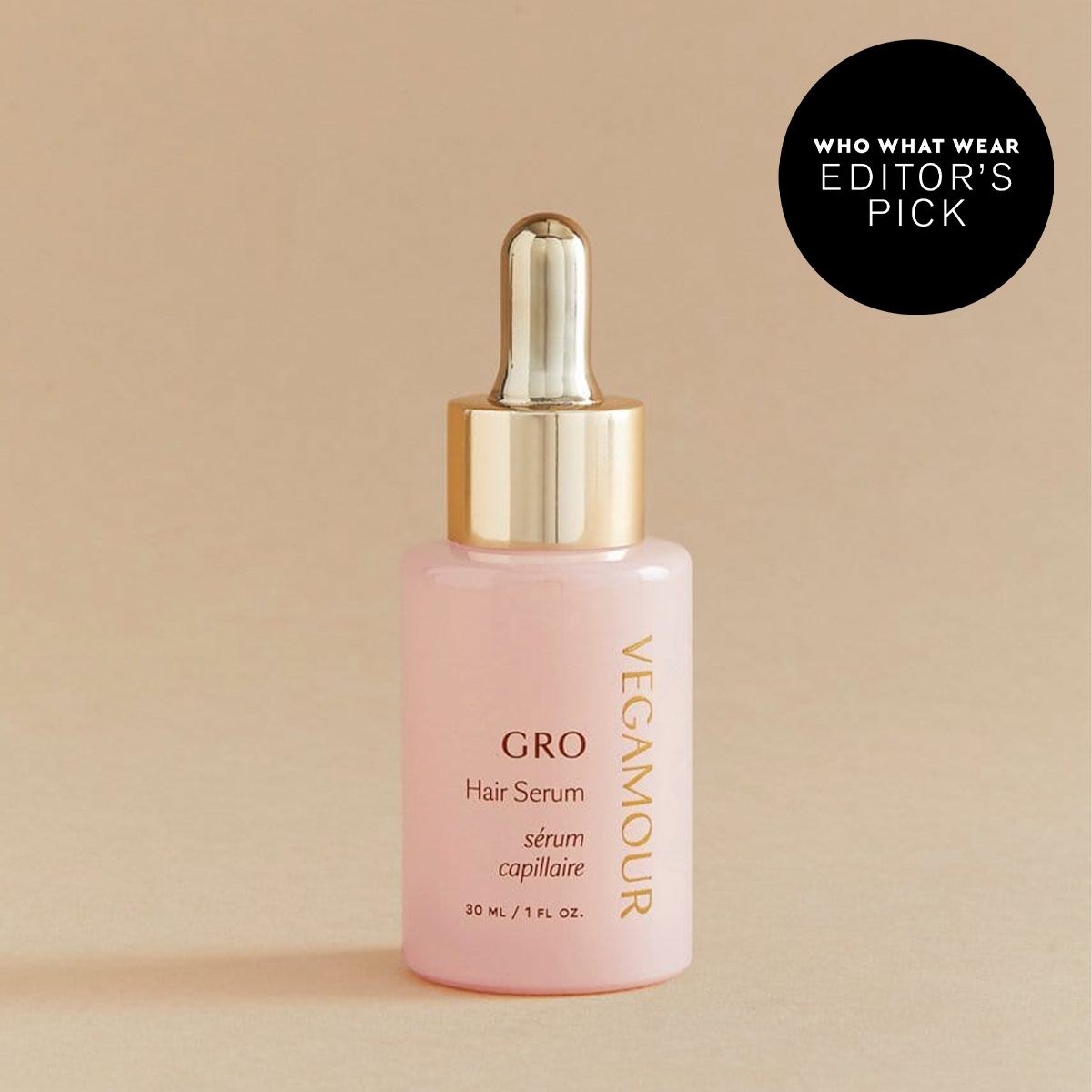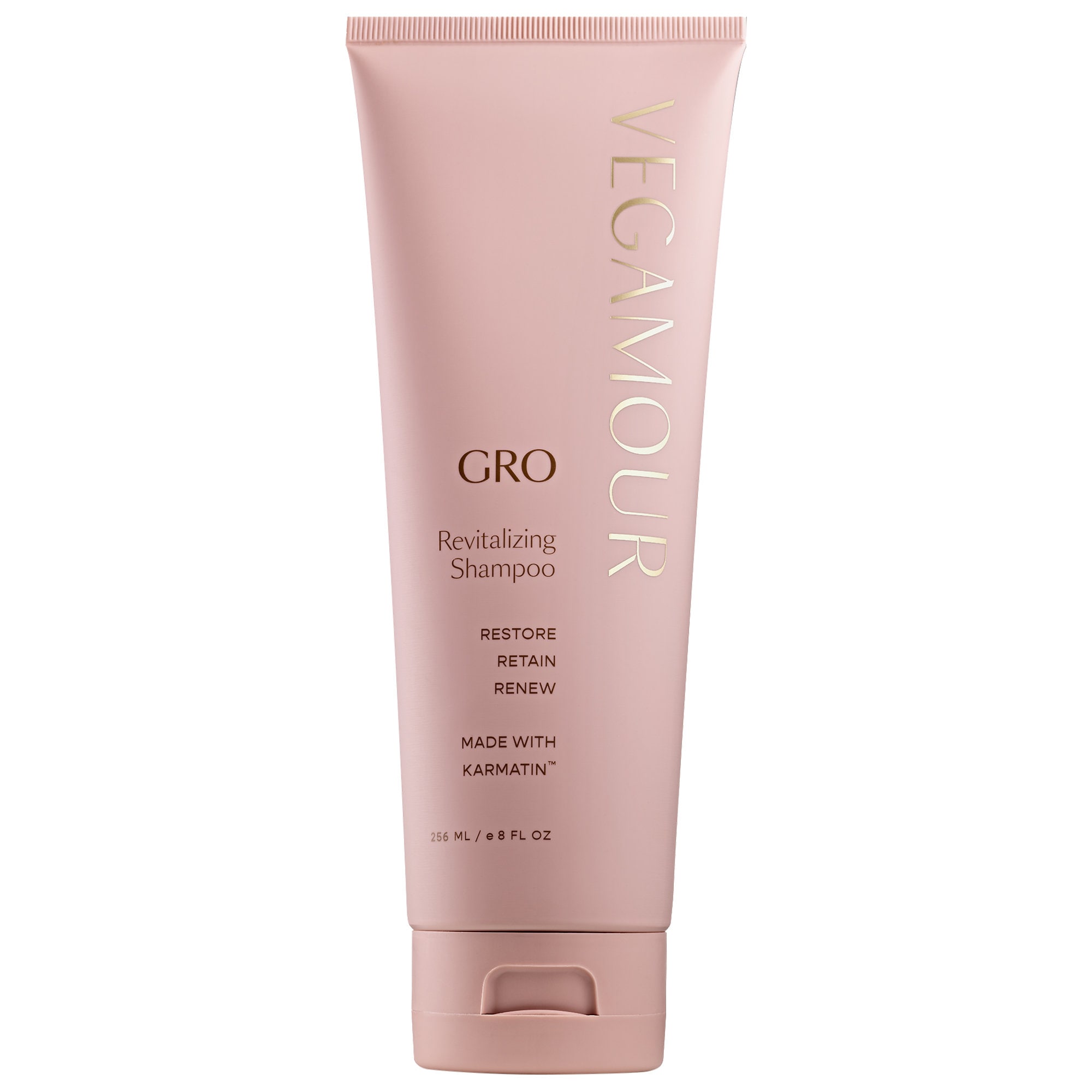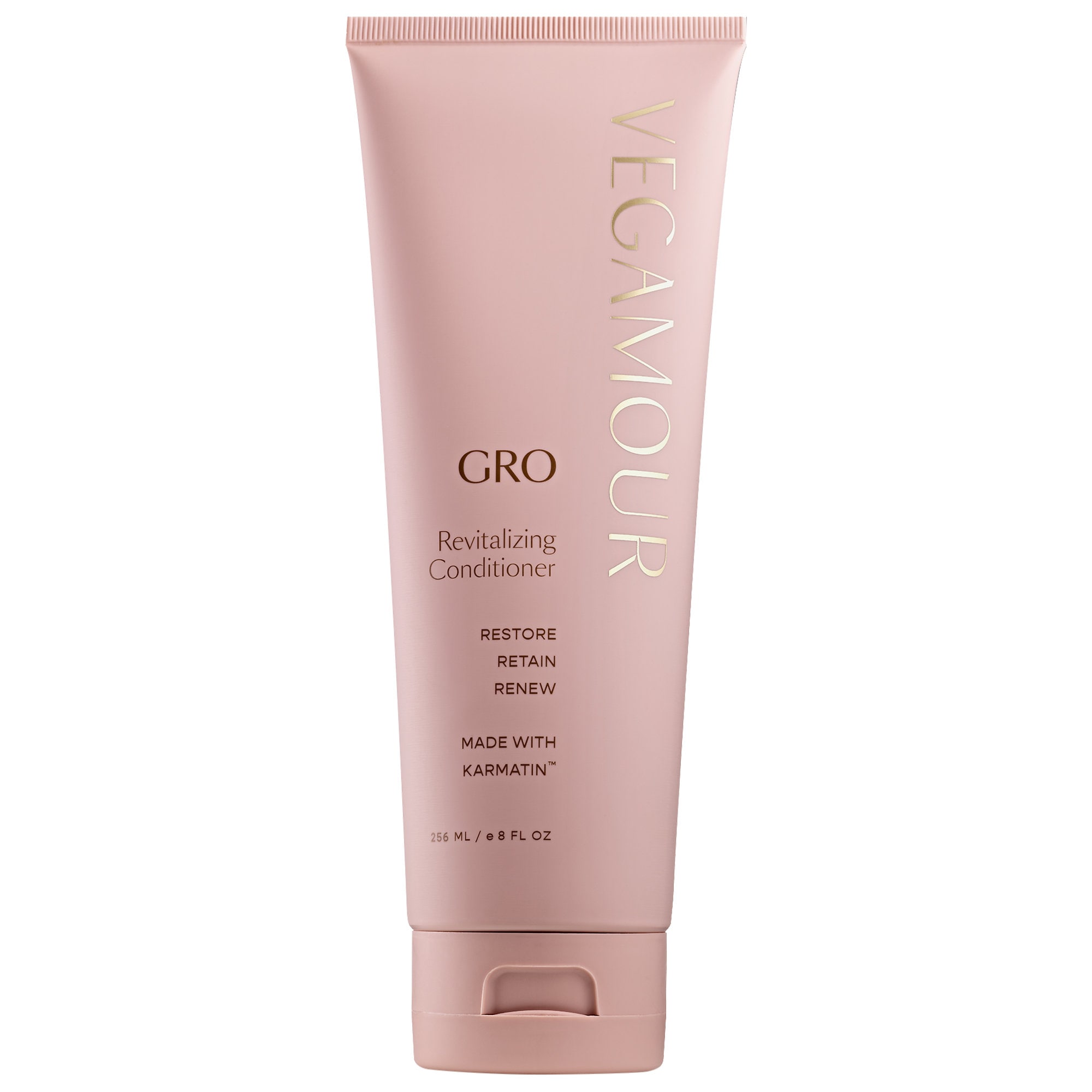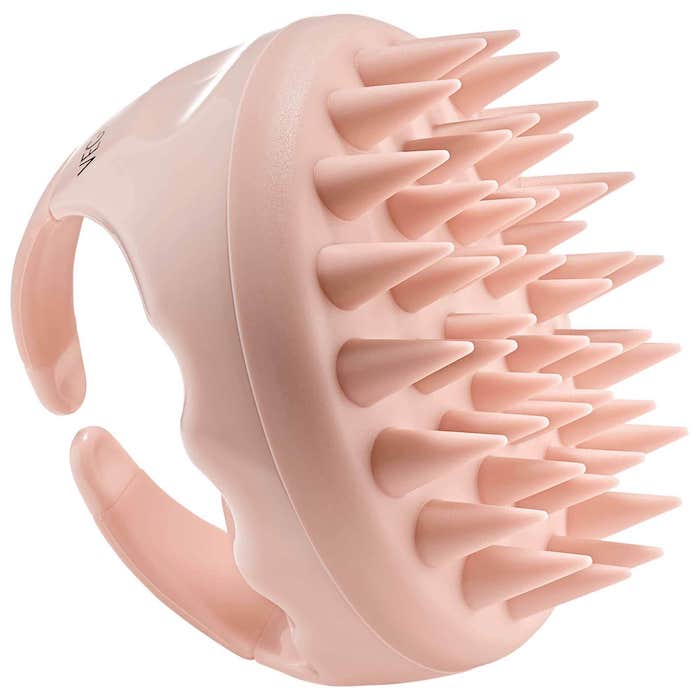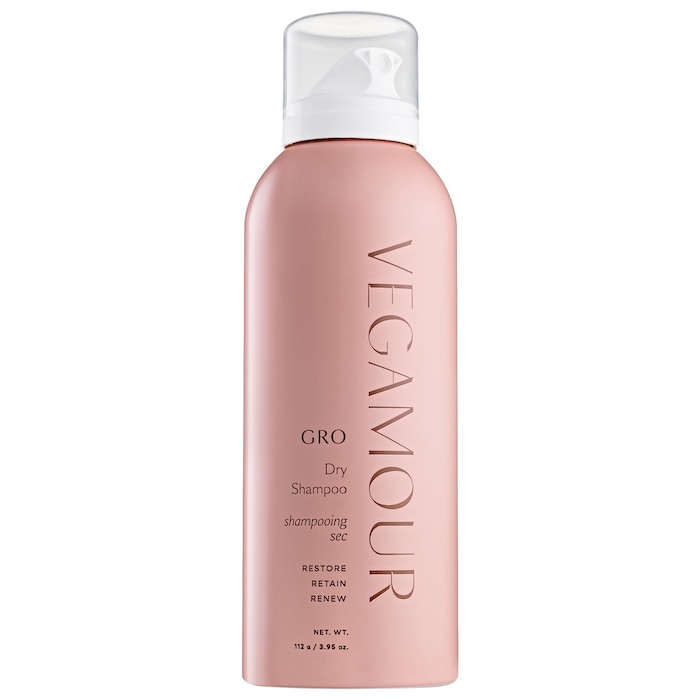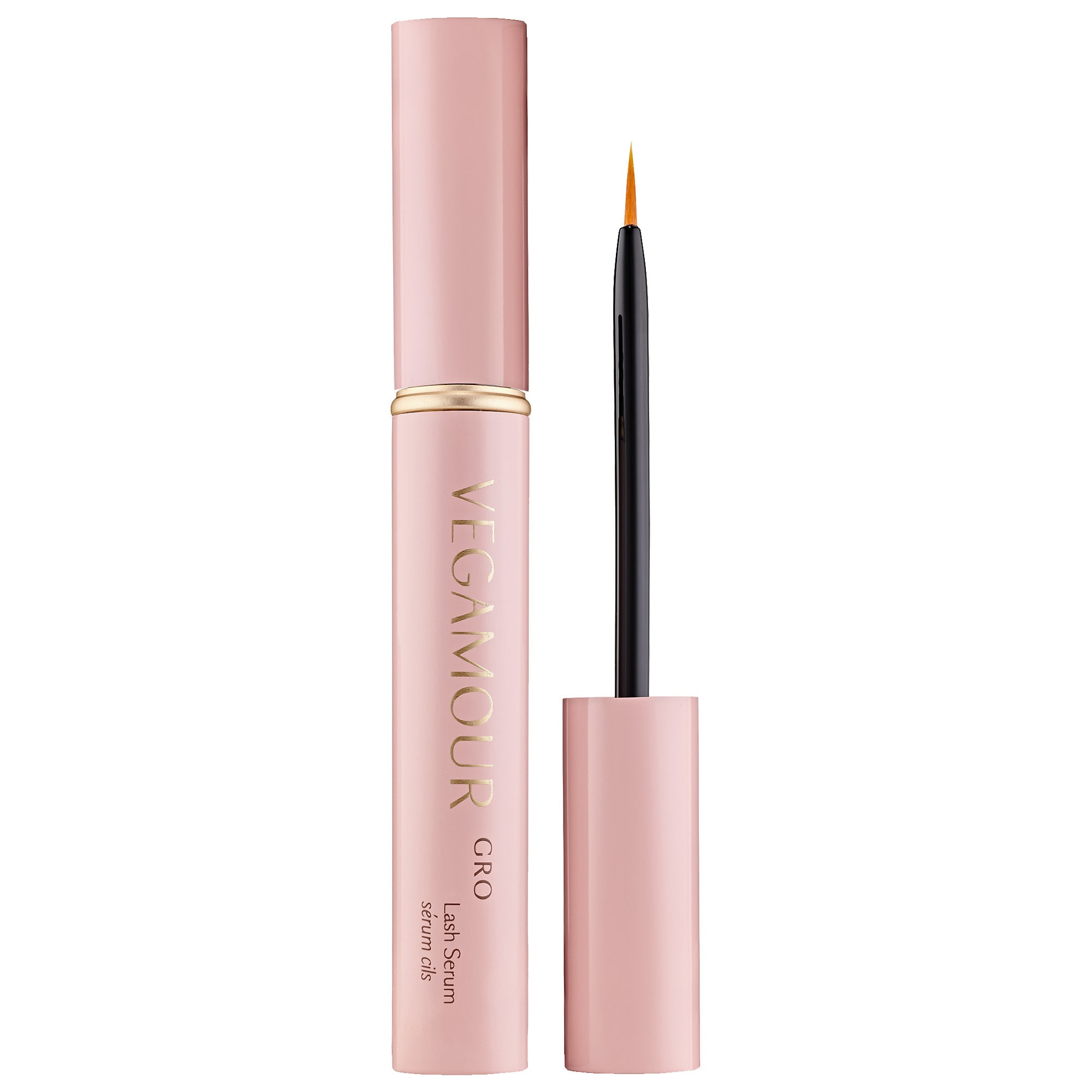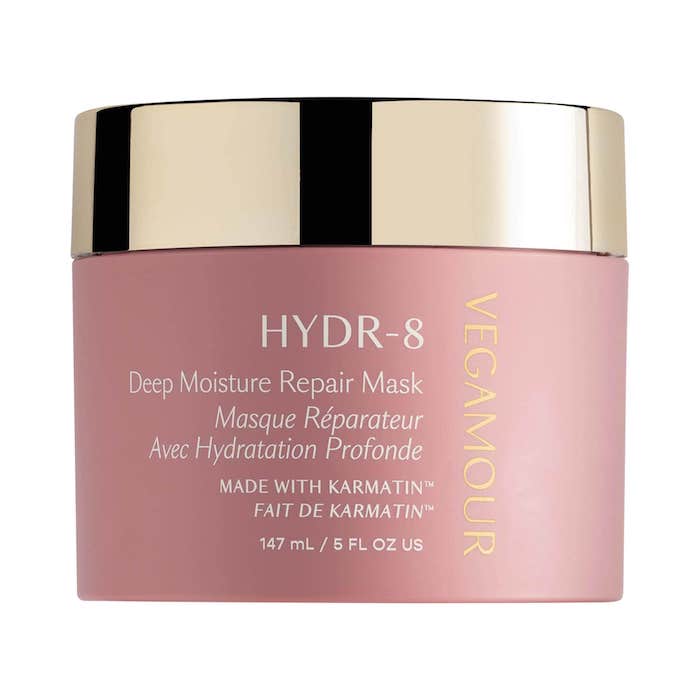Hair Serums Never Worked on My Thin Hair—Then I Tried This Growth-Boosting One
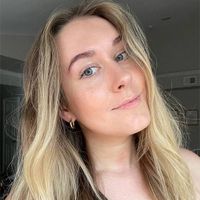

Welcome to Deep Reviews—your one-stop destination to discover the absolute best products and brands the beauty industry has to offer. Every month, the Who What Wear staffers you already know and trust will research, test, and review the market's most sought-after and buzzed-about products to see which formulas (of the hundreds up for consideration) are truly worth your hard-earned money and attention. You can expect honest, completely uncensored feedback and no-BS recommendations our hard-to-please testers endorse without reservations. To put it simply, stick with us, and buyer's remorse will be a thing of the past.
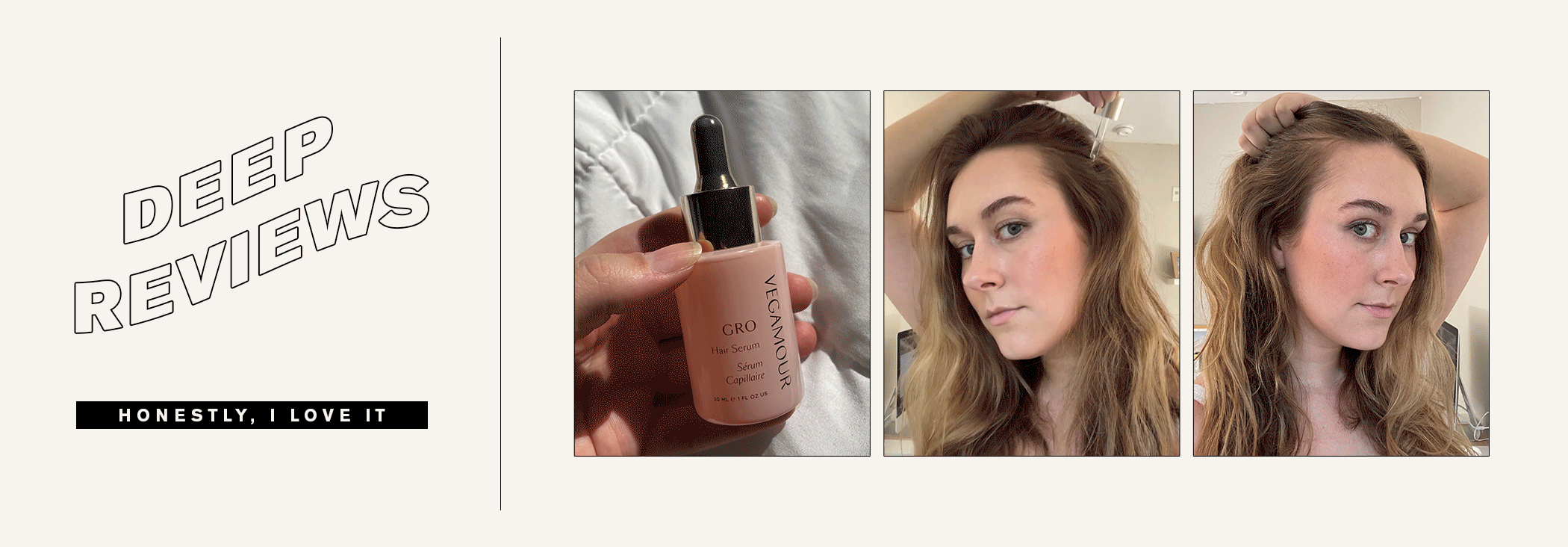
The majority of our Deep Reviews will feature our editors' honest, ultra-hot takes on entire product categories or multiple products from a particular beauty brand, but every so often, we'll sprinkle in a special single-product format called Honestly, I Love It. As the name suggests, these reviews will hone in on one standout beauty formula our editors quite literally can't shut up about. This time around, I'm highlighting Vegamour's Gro Hair Serum ($64).
I have fine hair, and I've had fine hair for as long as I can remember. Lately, though, I feel like my hair is even thinner than it used to be, which makes sense. I'm an anxious person, and I've heard that chronic stress can affect hair density and growth. To make matters worse, I have polycystic ovarian syndrome (PCOS), which is associated with hair thinning. Thanks to what I'm assuming is some combination of the two, I've been noticing some changes in my hairline, specifically around my temples. When I pull my hair back into a ponytail, bun, or claw clip, I can see much more of my scalp than I'd like.
Because of this, I knew it was time to reluctantly turn to hair serums. I say reluctantly because, for years, I've been under the impression that hair serums don't work—at least not for me. Every time I tried one, I would inevitably end up disappointed when I didn't notice any difference in the density of my hair. This time, however, it felt like a higher-stakes situation. I wanted my old hair density back.
I flip-flopped back and forth between a couple of formulas, and then I landed on one that left me speechless. Even before the allotted time period was up (90 days), I saw a visible improvement in the density of my hairline. By the end of the 90 days, the sparse areas around my temples looked full. I had more baby hairs growing than ever before.
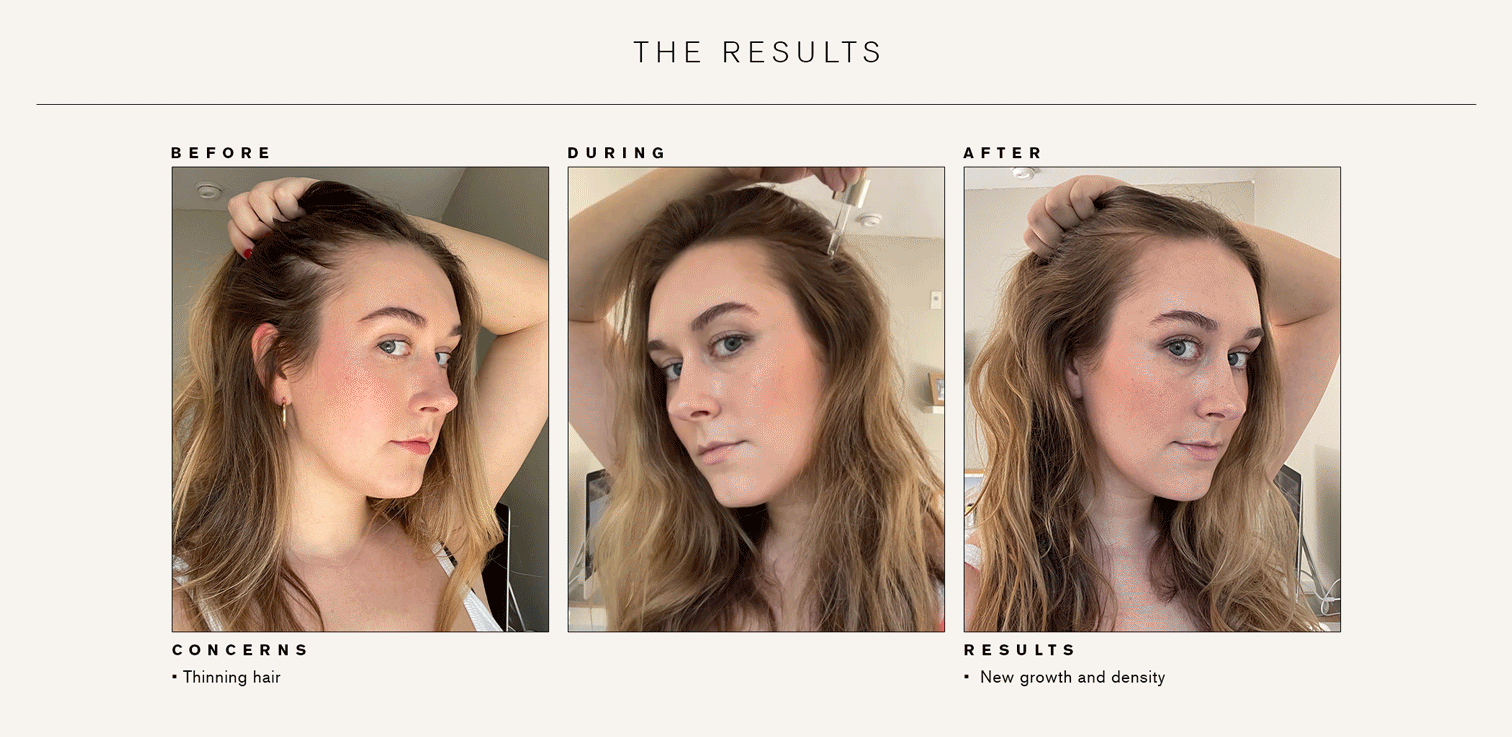
Here's the proof. In the first picture, you can see the sparseness around my hairline. As I said before, I hated how much of my scalp I could see when I pulled my hair back, so improving the density in that area was my main goal. I also wanted to improve the density of the hair around my temples and particularly on the right side of my head, which is where I've noticed the most thinning.
I took the second picture a full 90 days after I started using the hair serum every night. (Before bed, I would take a full dropper and apply it to my scalp in the thinning areas before gently massaging it in with my fingers.) My hair looks much fuller thanks to 100 short, new hairs that have begun growing in the area behind my temples. They definitely make it more difficult to style my hair, but I'm not complaining. Obviously, I would much rather have them than not.
I wanted to know how this serum was doing what it was doing. After all, I had never seen such an improvement after using a topical product before. I reached out to the experts to learn more about the miracle-working formula.

Board-certified and Harvard-trained dermatologist Neera Nathan, MD, assures me that I'm not crazy—this hair serum can really help with hair thinning. "For anyone seeking a natural alternative to treat hair loss, using a serum with topical caffeine, like the Vegamour Gro Serum, is a good place to start," she says. "There have been a few great studies about how topical caffeine can counteract the effects of hair loss. We know that stress plays a role in most types of hair loss, and caffeine is able to neutralize stress signals that lead to inflammation within the hair follicle. It should be applied directly to your scalp and will also take at least three months to see results."
Aanand Geria, MD, board-certified dermatologist and founder of Geria Dermatology, agrees that hair serums can be beneficial. In fact, he says they can offer multiple benefits, including moisturizing, nourishing, smoothing, protecting, and repairing the hair. However, it's critical to use them as directed. "Using a serum suitable for your hair type and specific concerns is important," he says. "It is also essential to use the serum as directed and not overuse it, as this could lead to product buildup and weigh down the hair."
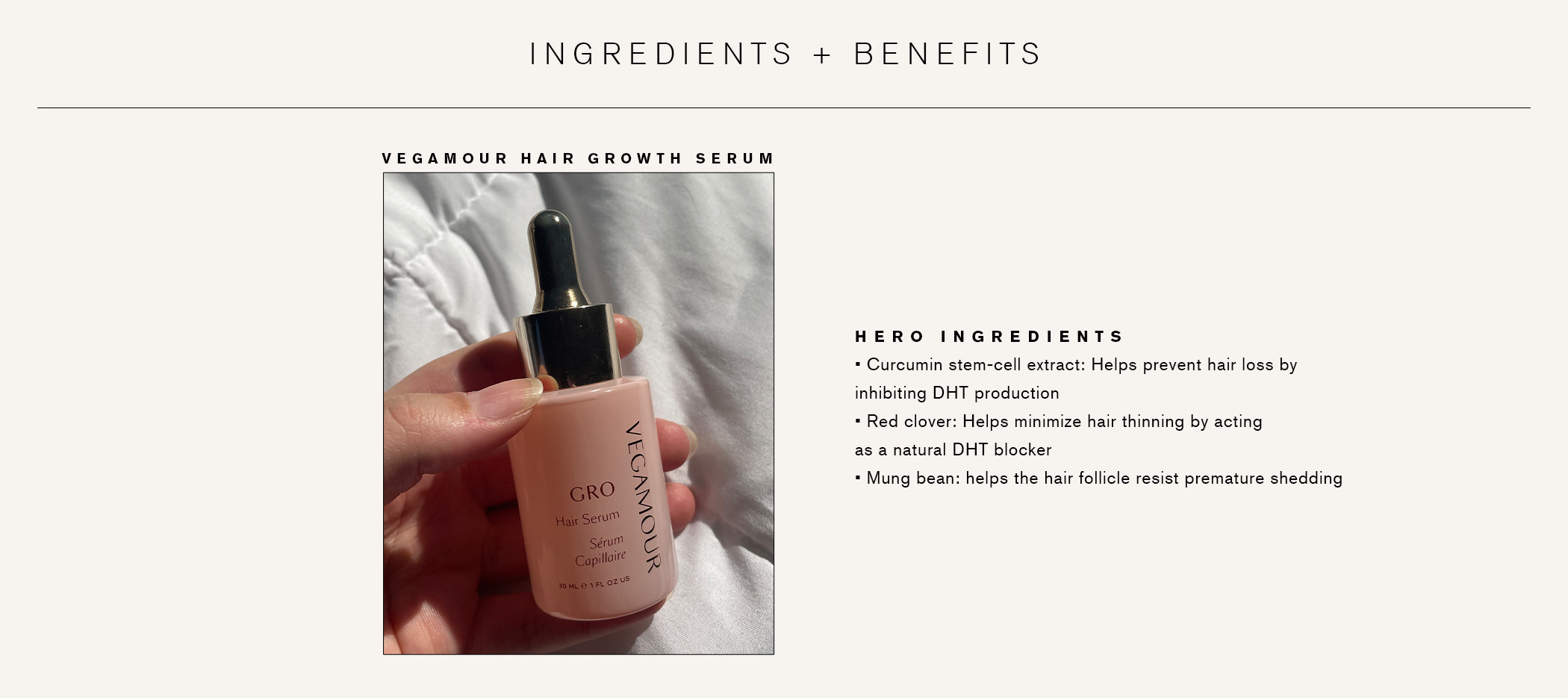
Let's talk about hero ingredients. The first is curcumin stem-cell extract. Nathan says it's a potent anti-inflammatory that may support hair growth by blocking hormone production in the hair follicle. While scientific evidence is limited, Geria says that it may be beneficial. "Curcumin is a natural compound found in the root of the turmeric plant, and it has been studied for its potential health benefits," he says. "While there is some evidence that curcumin may have anti-inflammatory and antioxidant properties and may also help promote hair growth, there is currently limited scientific evidence to support curcumin stem-cell extract specifically for hair regrowth."
Next, there's red clover, which may help block DHT. What's DHT? Let Nathan explain. "DHT, or dihydrotestosterone, is thought to be responsible for male pattern hair loss by causing hair follicles to shrink and eventually disappear over time," she says. "This hormone may also play a role in female pattern hair loss, but the exact role of hormones in hair loss in women is less clear."
Known for its anti-inflammatory benefits, Geria says red clover "contains compounds called isoflavones, similar to the hormone estrogen and may have estrogen-like effects in the body." For this reason, it could be beneficial for hair thinning, but he says more research is needed.
The third and final hero ingredient is mung bean. "Mung bean extract may support the dermal papilla, which has an important role in regulating the hair-growth cycle," Nathan says. "It is also a potent antioxidant and may help prevent damage to the hair follicle." Geria wholeheartedly recommends mung bean extract, as mung beans are "rich in nutrients such as protein, vitamins, and minerals that are essential for maintaining healthy hair growth." To be specific, mung beans are a natural source of iron, biotin, and zinc, all of which can benefit the hair follicle in myriad ways.
Expert Q&A
What causes hair thinning and hair loss?
Geria says that hair thinning can be influenced by multiple medical and lifestyle factors, including stress, certain medications, hormonal changes (like during menopause and pregnancy), and even hairstyling practices. "Hair thinning is a common issue that can happen naturally in women with age," he says. "As women age, their hair follicles can become less productive, decreasing hair density and thickness."
Can you prevent hair loss?
Nathan says that there are different types of hair loss that are characterized by different traits: "Hair loss is multifactorial, so no single treatment will be a complete cure." However, there are some steps you can take to prevent it. "You may help to prevent or slow hair thinning by making sure to take care of yourself by prioritizing sleep and finding ways to manage stress. Consume a varied diet that is rich in fruits, vegetables, and seeds, all of which contain antioxidants," she says. "Do not forget your protein! Adequate protein intake is so important for hair health. Hair is made of protein, and the body needs adequate protein stores to grow new hair. Experts recommend 40 to 60 grams of protein each day for healthy women who are experiencing hair loss."
Geria agrees, adding that your hair routine can make a big difference. "Excessive heat styling can damage hair and lead to hair thinning. Always use a heat-protectant spray, and keep the heat at a moderate temperature," he says.
He also recommends washing your hair regularly (no skipping shampoo!). "Regularly washing your hair with a mild shampoo can help prevent the buildup of oils and products that can clog hair follicles and cause hair thinning," Geria says. Finally, he recommends using a wide-toothed comb to brush your hair, as it will prevent pulling and breaking.
What should you do if you think you're experiencing hair loss?
If you think you're experiencing hair loss, Nathan recommends seeing a dermatologist. "There are topical, oral, injectable, and laser treatments for hair loss. I generally recommend starting with topical treatments, then adding or switching to other treatments depending on the response to the treatment," she says. "Make an appointment to see a doctor for any sudden or patchy hair loss or for an itchy or painful scalp."
Shop More Vegamour Products
Next, This $18 Triple-Exfoliating Body Scrub Makes My Skin Feel Like Expensive Silk
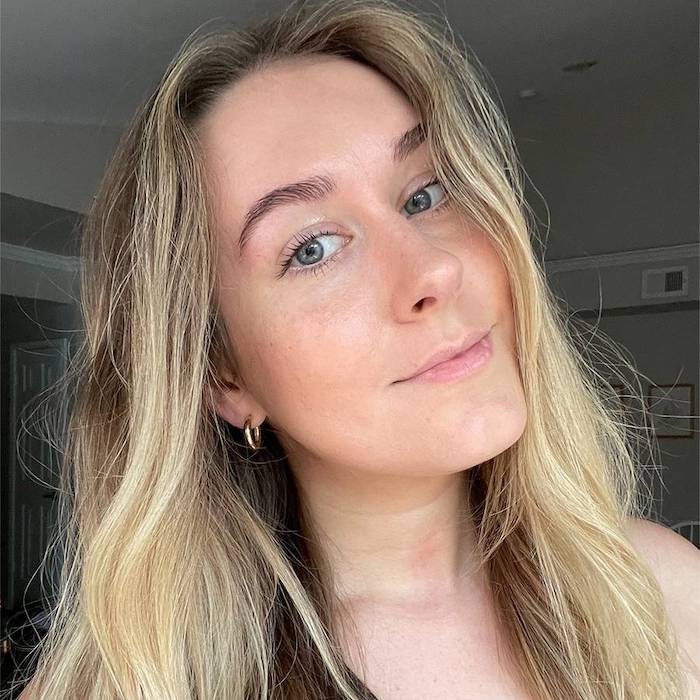
Kaitlyn McLintock is a Beauty Editor at Who What Wear. She has 10 years of experience in the editorial industry, having previously written for other industry-leading publications, like Byrdie, InStyle, The Zoe Report, Bustle, and others. She covers all things beauty and wellness-related, but she has a special passion for creating skincare content (whether that's writing about an innovative in-office treatment, researching the benefits of a certain ingredient, or testing the latest and greatest at-home skin device). Having lived in Los Angeles, California, and Austin, Texas, she has since relocated back to her home state, Michigan. When she's not writing, researching, or testing beauty products, she's working through an ever-growing book collection or swimming in the Great Lakes.
